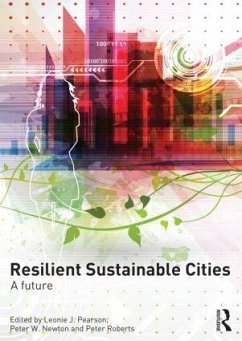Urbanization is occurring at an unprecedented rate; by 2050 three quarters of the world's people will live in urban environments. The cars we drive, products we consume, houses we live in and technology we use will all determine how sustainable our cities will be. Bridging the increasing divide between cross-disciplinary academic insights and the latest practical innovations, Resilient Sustainable Cities provides an integrated approach for long term future planning within the context of the city as a whole system. In the next 30 years cities will face their biggest challenges yet, as a result of long term, or 'slow burn' issues: population growth will stretch to the breaking point urban infrastructure and service capacity; resource scarcity, such as peak oil; potable water and food security, will dramatically change what we consume and how; environmental pressures will change how we live and where and; shifting demographic preferences will exacerbate urban pressures. Cities can't keep doing what they've always done and cope - we need to change current urban development to achieve resilient, sustainable cities. Resilient Sustainable Cities provides practical and conceptual insights for practitioners, researchers and students on how to deliver cities which are resilient to 'slow burn' issues and achieve sustainability. The book is organized around three overarching themes: pathways to the future innovation to deliver the future leadership and governance issues The book includes a variety of perspectives conveyed through international case studies and examples of cities that have transformed for a sustainable future, exploring their successes and failures to ensure that readers are left with ideas on how to turn their city into a resilient sustainable city for the future.
Hinweis: Dieser Artikel kann nur an eine deutsche Lieferadresse ausgeliefert werden.
Hinweis: Dieser Artikel kann nur an eine deutsche Lieferadresse ausgeliefert werden.

